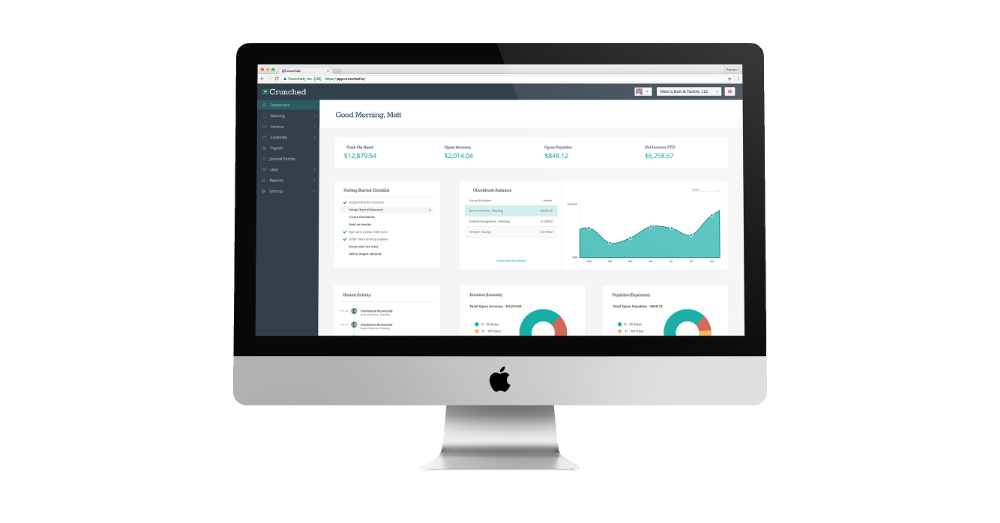Accounting Basics For Freelancers
By Matt Reims
Being a freelancer comes with a world of benefits, like flexibility in scheduling and the ability to choose your own clients. For most freelancers, not all tasks are created equal, however. Accounting and bookkeeping can be a drawback of the job for some. As a freelancer, you’re likely creatively driven, and most would rather not have to deal with the numbers and somewhat rigid process. Fear not — with some basic accounting guidelines, you can make the process fast and easy while ensuring that your bookkeeping is well organized.
Freelancers are essentially small business owners. That means you’re responsible for managing tasks such as creating invoices, paying bills and vendors, keeping track of expenses, etc. Having an understanding of accounting basics is critical to your business running smoothly and will help you stay out of trouble with the IRS. The following are a few essential accounting tips to help you get started.
Invoicing
Setting up a formal invoicing solution will help you maintain a professional and organized billing process. You’ll need to keep track of how much money is owed to you, when payments are due, and when payments are late. You should set up an invoice for each product or service that you provide and establish terms for getting paid. Net 30 terms are typical, meaning that you provide your customers 30 days to pay the invoice. Payment terms can vary, and should be based on the amount of time that you and your customers are comfortable with. Learn more about how to properly set invoice payment terms.
Cloud accounting software will allow you to create professional invoices, set due dates with reminders, and send invoices electronically. This type of platform can even help facilitate online payments of your invoices. And when you use accounting software to manage your bookkeeping, you’ll have a record of all of the money coming into the business as well as other critical financial information.
Tracking Expenses
As a freelancer, you’re likely not dealing with inventory or paying employees; however, you will still incur business expenses. Keeping track of these expenses will help give you a clear picture of how much money is going out of your freelance business. Cloud accounting software can help you record your expenses as well as the money that comes in. The checkbook feature of your cloud accounting software will help you reconcile these numbers at the end of each month to give you a clear picture of where you stand financially.
The money paid out of your business can be categorized in two ways: direct expenses and claimed expenses. Direct expenses are not tax deductible. Examples of direct expenses include:
- Paying vendors and suppliers
- Paying for products that are resold to customers
Claimed expenses are the variety of expenses that you can deduct for your taxes at the end of the year. Of course, these expenses need to be directly related to the business. The following are a few examples:
- Business travel, including meals, plane fare, hotel stays, auto mileage, etc.
- Office supplies
- Membership dues related to your freelance operation
- Internet and phone
- Equipment and supplies
- Educational courses and materials
When looking to make deductions, make sure there are no gray areas. Keep your business and personal expenses separate. For example, you may use your cell phone for work and personal use. To get a more detailed understanding of what can and cannot be deducted, visit the IRS website.
Estimated Tax Payments
One of the major accounting responsibilities of a freelancer will be managing your taxes. If you’re a full-time employee, your employer manages all your withholdings and tax responsibilities throughout the year. As a freelancer, you are responsible for paying your taxes on a quarterly basis. To do so, you need to estimate your quarterly income and make payments based on those numbers. Check with your individual state to determine the due dates for each quarter. And each year, double-check the federal payment due dates with the IRS.
It’s important not only that you pay your taxes by these dates but also that you pay enough taxes. If you don’t, you could be charged a penalty. Accounting software can give you a clear picture of your expenses and income, which will allow you to make more accurate quarterly tax payments.
Establish a Plan for Tax Payments
Consider setting up a separate bank account where you can put money away to pay your taxes. A safe estimate to keep you from being completely stunned when your taxes are due would be between 25 to 30 percent of your income. This percentage can vary depending on your income bracket. For more information on tax rates based on income, check out TaxAct.
If you deduct and set aside the appropriate amount from each payment you receive, you should be covered when it’s time to make estimated tax payments. If you work with a cloud-based accounting software program, it will help you forecast your estimated taxes to keep you on track each quarter.
Keeping track of your financial records, like expense receipts, bank transactions, and previous tax payments, all in one place will be critical to maintaining a healthy accounting system as a freelancer. Cloud accounting software can help you organize and automate the process to make it that much easier and more accurate.


